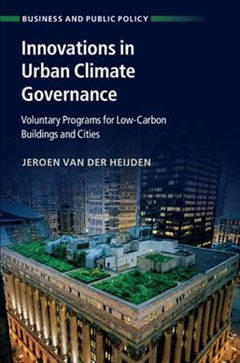
Qualitative Comparative Analysis (QCA) provides a bridge between case-oriented and variable-oriented research methods. It is rapidly making inroads in the social sciences.
This master class is designed for participants who are familiar with the basics of QCA. Participants without any QCA experience or previous formal QCA training are strongly recommended to first complete the master class Qualitative Comparative Analysis: An introduction.
This course is being offered across 4 evenings 'live' online via Zoom.
See syllabus below for a detailed timetable.
The Course will run from 6.30 pm to 9.30 pm on Australian Eastern Daylight Time (GMT +11)
(ie Melbourne, Sydney, Canberra daylight savings time)
Professor Jeroen van der Heijden – With 20+ years of international research experience, Jeroen specializes in climate change solutions for urban environments, encompassing both mitigation and adaptation strategies. His journey includes an MSc in Architecture and Ph.D. in public administration from TU Delft (Netherlands) and academic roles at institutions worldwide, including professorships at the Australian National University (Australia), Amsterdam University (Netherlands), and the Victoria University of Wellington (New Zealand). He has authored over 80 peer-reviewed articles, 70 book chapters, and notable books on urban climate governance and action—many of which include applications of QCA.
Since 2007, he has been applying QCA in various research projects and has been teaching the method since 2017. More information on Jeroen’s work is available from www.jeroenvanderheijden.net.
This is an intermediate master class. In it, we will go through the 10 steps of a full QCA project. It is expected participants are familiar with the basics of QCA, as, for example, taught in the ACSPRI master class Qualitative Comparative Analysis: An introduction.
The 10 steps we undertake in this master class are:
1. Explaining the theoretical motivations for choosing QCA for your project
2. Selection of outcomes and conditions
3. Explaining the limitations that come with the number of conditions chosen
4. Calibration of data
5. Develop a raw data matrix
6. Analysis of necessary conditions
7. Analysis of sufficient conditions: truth table
8. Analysis of sufficient conditions: choice of solution term
9. Presentation of results
10. Testing robustness and interpretation of results
The master class is a mix of lectures and exercises—the emphasis is on lectures, however (one of the challenges of QCA is that its iterative nature asks for much upfront “explaining” of later steps before early steps can be undertaken). By the end of this master class you will be able to carry out a full QCA application (both crisp set and fuzzy set). In class, we will mainly use crisp set QCA examples (they are easier for teaching purposes), but as will become clear in the class: crisp set (csQCA) is a specific application of fuzzy set qualitative comparative analysis (fsQCA).
If you already have QCA-ready data, or data that you hope can be transformed to be QCA-ready, then please make sure to have it handy for the master class.
The target audience for this master class are researchers, practitioners and academics who have conducted at least one qualitative study, and are familiar with the basics of QCA. The master class is a combination of lectures, group discussions, and QCA exercises.
Day 1
- 6:30-7:00, Introductory session:
- Who is who? Why have you chosen this course? What do you expect to get out it?
- What are we going to do over the next two days? What are we not going to do?
- 7:00-8:00, The first 3 steps:
- Step 1: Explaining the theoretical motivations for choosing QCA for your project
- Step 2: Selection of outcomes and conditions
- Step 3: Explaining the limitations that come with the number of conditions chosen
- Note: these three steps are extensively covered in the master class Qualitative Comparative Analysis (QCA): An introduction
- 8:00-9:00, Step 4: Calibration of data
- What is data calibration? Why is it so important (and often time consuming) in QCA?
- How to calibrate your data?
- 9:00-9:30, Open discussion, calibrating your own data
- What challenges do you expect to encounter in calibrating your own data?
Day 2
- 6:30-7:00, Step 5: Develop a raw data matrix
- What is the raw data matrix used for?
- 7:00-8:00, Reflection on necessary, sufficient, INUS, and SUIN conditions
- What do all these terms mean?
- How do you think necessary, sufficient, INUS, and SUIN conditions will play out in your work?
- 8:00-9:30, Step 6: Analysis of necessary conditions
- What is the aim of the analysis of necessary conditions?
- Exercise: analysis of necessary conditions in fs/QCA 3.0 (Windows and Mac software)
- Interpretation of findings (consistency, coverage, trivial necessary conditions)
Day 3
- 6:30-8:00, Step 7: Analysis of sufficient conditions – truth table
- What is a truth table?
- Exercise: create a truth table in fs/QCA 3.0 (Windows and Mac software)
- Dealing with conflicts
- Dealing with logical remainders
- 8:00-9:30, Step 8: Analysis of sufficient conditions – choice of solution term
- What is the aim of the analysis of sufficient conditions?
- Complex solution, intermediate solution, parsimonious solution
- Exercise: analysis of sufficient conditions in fs/QCA 3.0 (Windows and Mac software)
- Interpretation of findings (consistency, coverage, trivial necessary conditions)
Day 4
- 6:30-8:00, Recap of steps 6, 7 and 8
- Apply steps 6, 7 and 8 to your own data (or additional data provided by Jeroen)
- 8:00-8:45, Step 9: Presentation of results
- Exploring different ways to present findings
- 8:00-8:45, Step 10: Testing robustness and interpretation of results
- Some thoughts on assessing the robustness of your QCA results
- Final open discussion about applying QCA in your own work
This course will take place onlinem. It is expected that participants familiarize themselves with the QCA software (freeware) will use in class in preparation for this master class. This software, fs/QCA 3.0, is available from: http://www.socsci.uci.edu/~cragin/fsQCA/software.shtml
The target audience for this master class are researchers, practitioners and academics who have conducted at least one qualitative study, and are familiar with the basics of QCA. The master class will at times be high pace, and you will need to be able to understand the following concepts prior to participating in this master class: conjunctural causation, equifinality, necessity and sufficiency (in the context of QCA), logical minimisation, set theory and Boolean algebra (in the context of QCA), and data calibration (limits, membership, threshold point).
If you are not yet familiar with the basics of QCA, it is strongly recommended that you first complete the master class Qualitative Comparative Analysis: An introduction.
The instructor's bound, book length course notes will serve as the course text.
• Schneider, C. and C. Wagemann (2012). Set-Theoretic Methods for the Social Sciences. Cambridge, Cambridge University Press.
• van der Heijden, J. (2017). Innovations in Urban Climate Governance: Voluntary Programs for Low-Carbon Buildings and Cities. Cambridge, Cambridge University Press.
Other readings:
• Ragin, C. (2008). Redesigning Social Inquiry: Fuzzy Sets and Beyond. Chicago, Chicago University Press.
• Rihoux, B. and C. Ragin (2009). Configurational Comparative Analysis. London, Sage.
Q: Do I have to have had any qualitative research experience to do this course?
A: Yes, you will have been expected to have experience with at least one qualitative research project or have undertaken an introductory level course in qualitative research methods.
Q: Do I have to have had any experience with QCA to do this course?
A: Yes. The master class will at times be high pace and you will need to be able to understand the following concepts prior to participating in this master class: conjunctural causation, equifinality, necessity and sufficiency (in the context of QCA), logical minimisation, set theory and Boolean algebra (in the context of QCA), and data calibration (limits, membership, threshold point).
If you are not yet familiar with the basics of QCA, it is strongly recommended that you first complete the master class Qualitative Comparative Analysis: An introduction. It is also strongly recommended to familiarise yourself with the recommended texts before participating in this master class; particularly Schneider and Wagemann (2012).
Q: I already have some experience with QCA. Will I get anything out of this introductory course?
A: You absolutely will. Dr
Professor Jeroen van der Heijden – With 20+ years of international research experience, Jeroen specializes in climate change solutions for urban environments, encompassing both mitigation and adaptation strategies. His journey includes an MSc in Architecture and Ph.D. in public administration from TU Delft (Netherlands) and academic roles at institutions worldwide, including professorships at the Australian National University (Australia), Amsterdam University (Netherlands), and the Victoria University of Wellington (New Zealand). He has authored over 80 peer-reviewed articles, 70 book chapters, and notable books on urban climate governance and action—many of which include applications of QCA.
Since 2007, he has been applying QCA in various research projects and has been teaching the method since 2017. More information on Jeroen’s work is available from www.jeroenvanderheijden.net.
Loved the practical work with the software to reinforce content. (Online Summer 2020)
There was an EXCELLENT balance in the activities. (Online Summer 2020)
Jeroen was very helpful and always responsive to questions. He put a lot of additional work into the slide materials to make them relevant to us each day. (Online Summer 2020)
The instructor's bound, book length course notes will serve as the course text.
